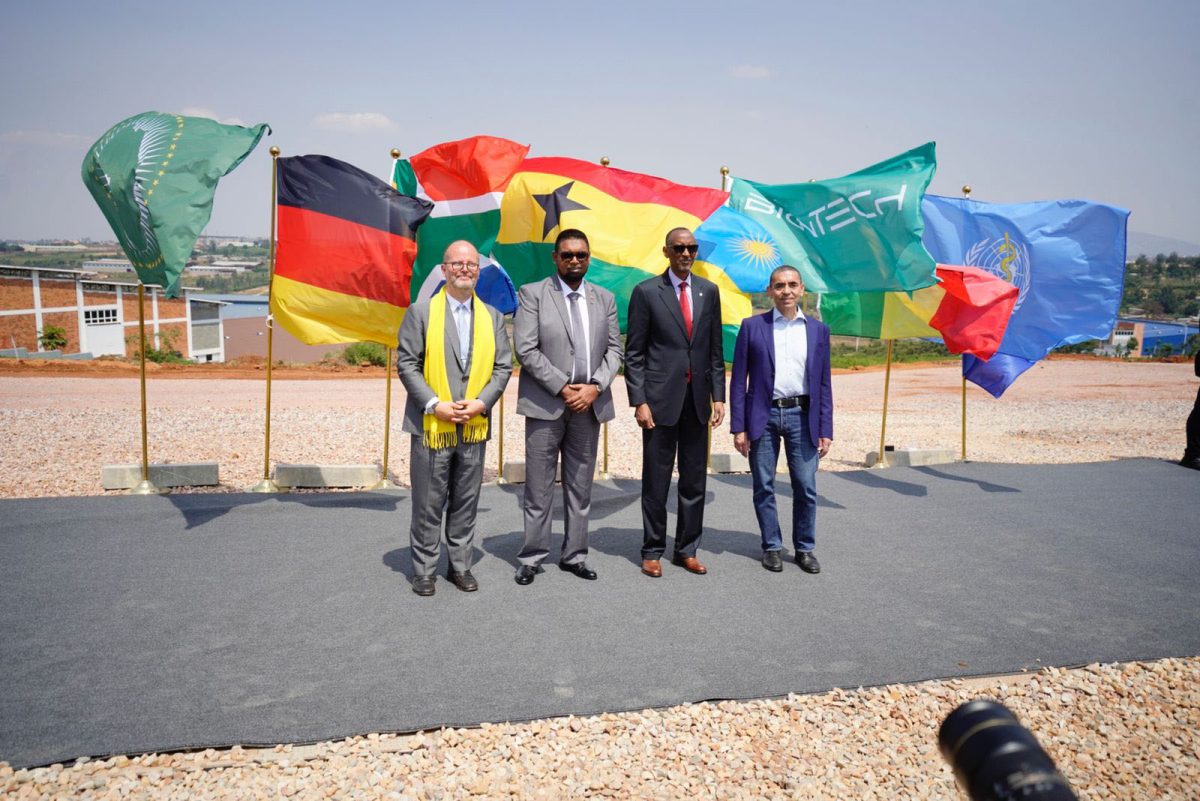President Irfaan Ali says that Guyana will be seeking to develop the framework and infrastructure to not only build a similar facility like BioNTech’s mRNA vaccine factory in Rwanda, but to attract investors in medical research and development.
According to a statement from the Office of the President, Ali made this announcement yesterday at the launch of COVID-19 vaccine maker BioNTech’s mRNA vaccine factory in Kigali, Rwanda’s capital.
The President is in Rwanda for the Commonwealth Heads of Government Meeting which begins today.
“Of course, for Guyana, this is the direction we want to head in. We want to be able to develop the framework and infrastructure to be able not only to build a similar facility in Guyana but to encourage investors in research and development in the medical field as a whole to come to Guyana as a medical hub, in developing vaccines and developing a treatment for malaria, etc”, he said.
To attain his, the President noted, will require the “right” regulatory, legislative and institutional framework and the support of countries like Rwanda and Ghana, who have already blazed the trail. To this end, bilateral discussions on the way forward are already “on the agenda” with the two African states.
“We can work with these countries in building our regulatory framework, our institutional framework, and developing the training facility that will ensure we have highly skilled and capable human resources to transition into this new field and to transition into this new area of developmental opportunity that we want to bring to Guyana”, he said, according to the statement.
The President disclosed that Guyana and Barbados will be “aggressively” working together with the innovators, researchers, and developers in pursuing the initiative.
“Well, Prime Minister (Mia) Mottley and I had had some discussions already. And one of the things that we’re looking to do is to have the regulators and the Attorney Generals for the countries look at our existing legal framework, look at our existing food and drugs administration, and to see how we can bridge the gap and then to take the model out of Rwanda and Ghana, to incorporate that model in advancing our legislative framework to build a foundation that this industry can be built on”, Ali said.
He added: “Well, it’s not only Guyana; we are an important hub. We are part of the Caribbean; we are a part of South America. We have a lot of trade agreements with a number of countries, and it is one to ensure that the region itself, Guyana and the region, has a facility that we can be dependent on in terms of crisis vaccines, to respond to our own needs, the built our capacity, and also, more importantly, to make us vaccine secure.”
BioNTech said that the initial vaccine factory in Kigali, made from an assembly kit and housed in shipping containers would, over the next few years become part of a wider supply network encompassing several African nations, including Senegal and South Africa.




